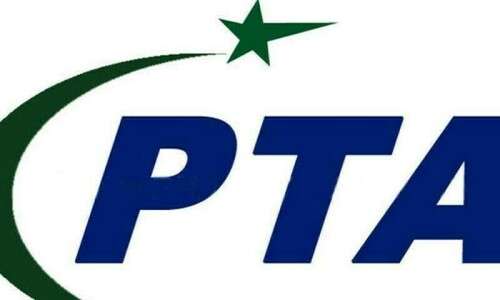Introduction
The Ministry of Religious Affairs and Interfaith Harmony in Pakistan has taken a significant step to address the growing concerns over offensive and harmful content available online. In a letter sent to the Pakistan Telecommunication Authority (PTA), the ministry has called for the urgent need to block blasphemous and pornographic content on the internet. This plea underscores the ongoing struggles Pakistan faces with regulating online content, which remains accessible despite previous efforts by authorities.
This article explores the issues raised by the Ministry of Religious Affairs, highlighting the detrimental effects of such content on Pakistani society, particularly on its cultural and religious values. Furthermore, the article will delve into the Ministry’s concerns regarding the effectiveness of PTA’s content regulations and the steps that need to be taken to combat the spread of offensive material.
Growing Concern Over Offensive Online Content
Blasphemous and Pornographic Content: A Serious Threat
The Ministry of Religious Affairs has pointed out a serious issue — the continued availability of blasphemous and pornographic material on the internet, which it believes contradicts Pakistan’s cultural and religious norms. Despite efforts by the PTA to block such content, the ministry has found that these types of content are still widely accessible to the public. This situation has sparked alarm, particularly among the Ministry’s leaders, who are tasked with upholding Pakistan’s values.
Alarm Over Pakistan’s High Viewership of Adult Content
One of the most disturbing revelations in the ministry’s letter to the PTA was the alarming statistic that Pakistan is among the highest viewers of adult content globally. This is a matter of great concern, especially for a country where cultural and religious values are held in high regard. The Ministry of Religious Affairs has strongly expressed its apprehension over the negative consequences that exposure to such material may have, particularly on the youth of Pakistan.
Supreme Court Directives and PTA’s Role
The Ministry’s Reference to Supreme Court Directives
The Ministry of Religious Affairs reminded the PTA of the Supreme Court’s directives concerning the blocking of adult and blasphemous content online. These directives were issued to ensure the protection of citizens, particularly minors, from harmful content and to preserve the country’s cultural values. The Ministry’s letter emphasized that despite these directives, the internet continues to be flooded with inappropriate material, which poses a significant challenge to enforcing the law.
PTA’s Efforts and Lack of Visible Results
While acknowledging the PTA’s ongoing efforts to block harmful content, the Ministry has stated that these efforts have not yielded visible results. The PTA has been making “significant efforts” to filter adult and blasphemous content from social media platforms, but the Ministry claims that the content remains accessible. This has raised questions about the effectiveness of PTA’s strategies and its ability to enforce the necessary regulations.
The Ministry highlighted that the inability to effectively enforce these regulations poses a risk to the cultural and religious fabric of the nation. The widespread availability of such content not only undermines Pakistan’s cultural identity but also endangers the mental and moral development of young individuals who may be exposed to these materials.
The Ministry’s Call to Action
Urgent Need for Stricter Measures
The Ministry of Religious Affairs has called on the PTA to take immediate and stricter actions to block access to offensive content, particularly content that is blasphemous or pornographic. The Ministry believes that without these measures, Pakistan will continue to face challenges in safeguarding its citizens from harmful online content. The Ministry has urged the PTA to enhance its regulatory framework and ensure better enforcement of the Supreme Court’s orders.
Moreover, the Ministry is urging for a more comprehensive and coordinated approach to tackle online content issues. The letter to the PTA stressed the importance of adopting advanced technologies and improved systems to monitor and filter harmful material before it reaches the public.
The Role of the Public and Social Media Platforms
While the Ministry and PTA play key roles in regulating internet content, the responsibility also lies with social media platforms and the public. Social media companies must adhere to local laws and regulations, ensuring that harmful content is not allowed to flourish on their platforms. This calls for greater collaboration between government agencies and private companies to create a safer digital environment.
FAQs
1. Why does the Ministry of Religious Affairs want to block offensive content on the internet?
The Ministry of Religious Affairs is concerned about the negative impact of offensive content, such as blasphemous and pornographic material, on Pakistan’s cultural and religious values. They believe that this content undermines the country’s moral fabric, especially influencing young people negatively.
2. What types of content are the Ministry focusing on?
The Ministry is particularly focused on blocking blasphemous content and adult material that is considered harmful to the cultural, moral, and religious values of Pakistan. These types of content are viewed as a significant threat to society.
3. Has the PTA taken any action to block harmful content?
Yes, the PTA has made efforts to block adult and blasphemous content in line with Supreme Court directives. However, the Ministry of Religious Affairs claims that these efforts have not been entirely successful, and such content is still accessible online.
4. How is Pakistan’s online viewership of adult content affecting society?
Pakistan has been reported to be among the highest consumers of adult content globally. This trend is alarming because it poses a risk to the mental and emotional well-being of individuals, particularly the youth, and threatens to erode societal values.
5. What steps can be taken to address the issue of offensive content?
Stricter enforcement of existing regulations, enhanced monitoring systems, and collaboration between the PTA, social media platforms, and the public are necessary steps to combat the spread of harmful content. The Ministry has urged for more advanced technologies to be used in the detection and blocking of offensive material.
Conclusion
The Ministry of Religious Affairs has expressed grave concerns about the accessibility of blasphemous and pornographic content online, urging the Pakistan Telecommunication Authority to take stronger measures to block such material. The continued availability of harmful content is viewed as a serious violation of Pakistan’s cultural and religious values, which is why the Ministry has called for more effective enforcement of regulations. With growing concerns over the impact of this content on society, particularly the youth, it is crucial for the government and regulatory bodies to step up efforts in creating a safer and more responsible digital environment.
ALSO READ:



